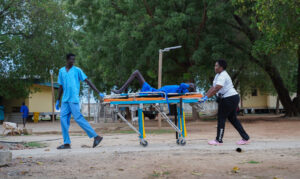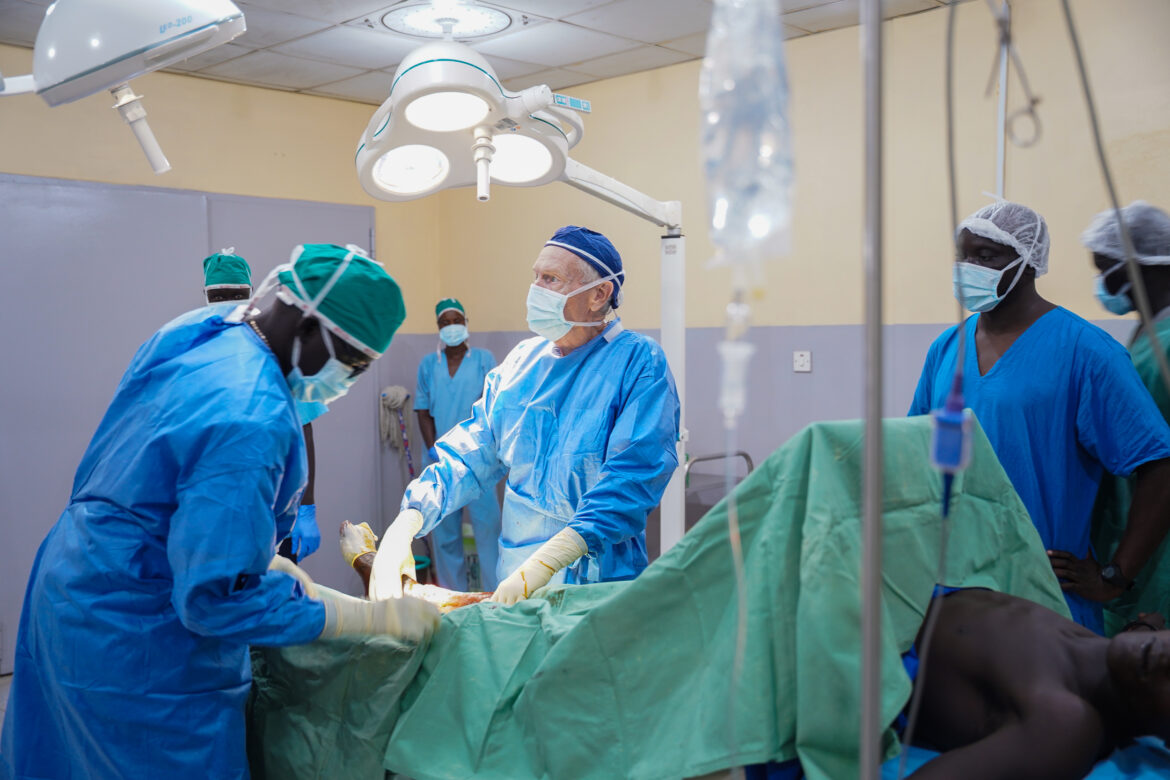By Matik Kueth
Médecins Sans Frontières (MSF) has completed a major transition, handing over its standalone hospital operations in the Bentiu IDP camp to the national Ministry of Health (MoH) and integrating services into the Bentiu State Hospital (BSH), after over a decade of providing vital healthcare to displaced communities in Unity State.
The shift, which began in July 2024 and concluded in June 2025, is being hailed as a milestone in strengthening South Sudan’s national health system and ensuring the long-term sustainability of care for one of the country’s most vulnerable populations.
In a statement issued on Monday, Emmanuel Omale, MSF Project Coordinator for Bentiu, emphasized that the relocation provides the groundwork for long-term healthcare.
“For years, MSF operated as a pillar of emergency healthcare in the Bentiu camp, especially during times of mass displacement, epidemics, and armed conflict. This transition lays a strong foundation for sustainable healthcare, ensuring uninterrupted medical services beyond MSF’s presence, while enhancing capacity through training and expanding access to a broader population,” Omale said.
Since the civil conflict began in 2013, the Bentiu IDP camp has hosted more than a hundred thousand displaced civilians, relying heavily on humanitarian organizations for essential services.
Within this context, MSF operated a standalone secondary care hospital, delivering maternal, pediatric, HIV/TB, surgical, and mental health services to thousands each month.
But with the relative stabilization of the region and evolving humanitarian strategies, the shift toward localization and integration with government systems became imperative.
Now operating out of the Bentiu State Hospital under a collaborative framework with the MoH, MSF continues to play a supporting role, bolstering infrastructure, training local healthcare workers, and responding to disease outbreaks.

Dobuol Majoh, an enrolled nurse, and Edith Mazwi, MSF OT surgical Nursing Activity Manager, Push a patient on a stretcher to the operating Theatre at Bentiu State Hospital [Photo Isaac Buay, MSF]
Simon Ruot, Medical Director of Bentiu State Hospital, commended the collaboration between MSF and MOH, pointing out that the hospital’s death rate has subsequently decreased.
“We’ve seen notable improvements in hospital infrastructure, an increase in skilled staff, and a meaningful decline in mortality rates. This collaboration between the government and MSF ensures our people receive the quality care they deserve,” he stated.
For MSF and the MoH, the transition is more than an administrative change; it’s about building resilience in a region often left behind by national development.
The integration also means that services are reaching beyond the confines of the camp, improving healthcare access for both displaced people and surrounding host communities.
Despite the positive strides, critical challenges remain, particularly in the IDP camp, where water, sanitation, and hygiene (WASH) conditions remain dire.
Years of underfunding and shifting donor priorities have led to a reduction in humanitarian support, straining the already fragile health infrastructure.
The agency further called on development and humanitarian actors to urgently re-engage and help fill critical gaps, particularly in the rehabilitation of sanitation facilities and the provision of clean water.



